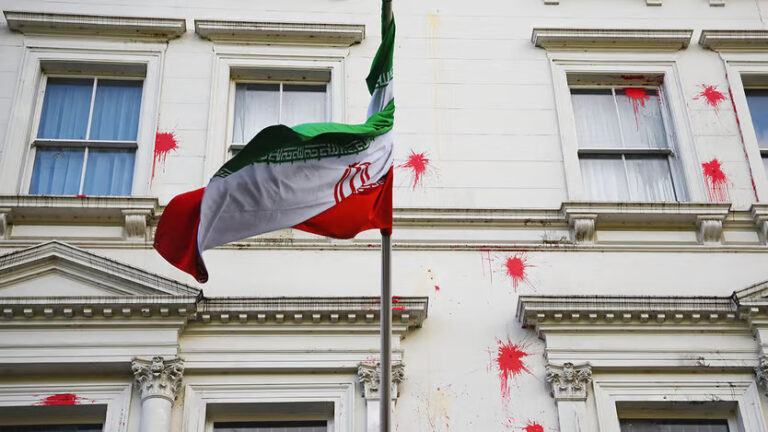GENEVA — Britain and France led a call Monday for an international probe into the violence that
followed last year’s disputed presidential election in Iran.
The demand, which Iran swiftly rejected, came during the U.N. Human Rights Council’s first
review of Iran’s rights record since the organization was founded in 2006.
Iran should invite U.N. Secretary-General Ban Ki-moon to “investigate the postelection violence
and independently assess the human rights situation,” Britain’s ambassador in Geneva, Peter
Gooderham, said during a three-hour U.N. debate.
France, like Britain a member of the U.N. Security Council and a frequent critic of abuses in
Iran, urged Tehran to accept an international panel to probe the “bloody repression” of
peaceful protests and the arrests of political dissidents in the wake of the elections June 12.
Opposition groups claim the vote that returned President Mahmoud Ahmadinejad to power was
fraudulent.
A high-ranking U.S. official said a U.N.-led investigation could be one way of shedding light
on claims that some of those arrested were tortured and killed in detention.
“I don’t think the form or the means matters as much as it does that there be some
international scrutiny of what’s going on,” U.S. Assistant Secretary of State Michael H. Posner
said.
Seyed Hossein Rezvani, a senior Iranian diplomat, told reporters that an international
investigation was “totally out of the question” since the country’s own judicial system was
capable of examining allegations of wrongdoing.
But he said Iran had issued an open invitation to all of the U.N.’s independent investigators
to visit the country, something campaigners have demanded for years. None of the global body’s
investigators has been able to visit Iran since Ahmadinejad took office in 2005.
One investigator, Manfred Nowak, the U.N’s expert on torture, told The Associated Press he had
asked for years to visit Iran and would welcome any invitation by the government.
Posner said Tehran’s report to the 47-member council – which said any allegations of wrongdoing
in Iran are being investigated – cast doubt on its willingness to honestly address claims of
official abuse.
“The human rights crisis in Iran continues and it’s imperative that the U.N. find the
appropriate ways to address it,” he said. The Iranian government’s account of the human rights
situation was “clearly at odds with reality,” he added.
Speaking during a visit to the Gulf state of Qatar, U.S. Secretary of State Hillary Rodham
Clinton earlier Monday accused Iran of becoming a military dictatorship.
Iran rejected criticism of its record, telling the Geneva-based council that the country’s
Islamic constitution safeguards its people’s human rights.
Iran “has taken a genuine and long-term approach to safeguarding human rights,” said Mohammad
Javad Larijani, the secretary general of Iran’s High Council for Human Rights.
Larijani, the brother of former nuclear negotiator Ali Larijani, accused Western countries of
criticizing Iran’s rights record “to advance certain ulterior political motives.” He didn’t
elaborate.
Posner dismissed suggestions that the U.S. treats Iran more harshly because of concerns about
its efforts to develop nuclear weapons. However, he acknowledged that the recent political
turmoil might raise concerns about the country’s stability.
Monday’s debate was eagerly anticipated by human rights groups, who have strongly criticized
Iran’s record of executing minors, stifling free speech and restricting the rights of women and
minorities.
Dozens of Iranian exiles held a rally outside the U.N.’s European headquarters to protest
abuses in Iran.
Several of Iran’s allies, including Cuba, Venezuela, Sri Lanka and Nicaragua, defended Tehran’s
record, citing the government’s achievements in promoting cultural, education and health care
rights.







+ There are no comments
Add yours